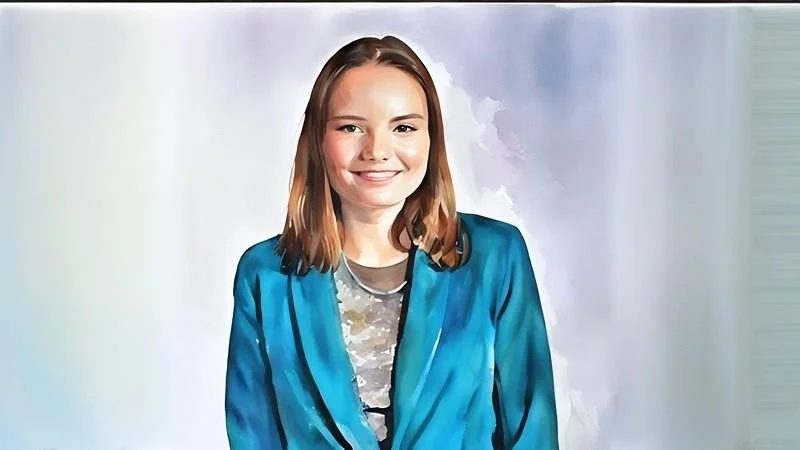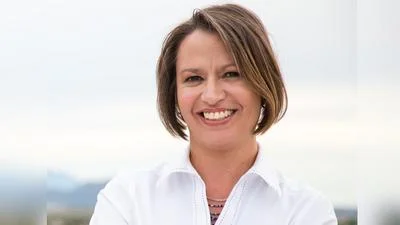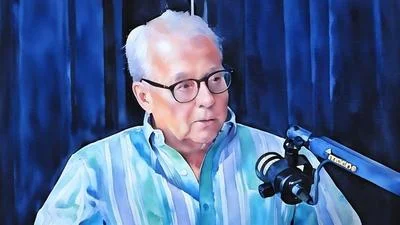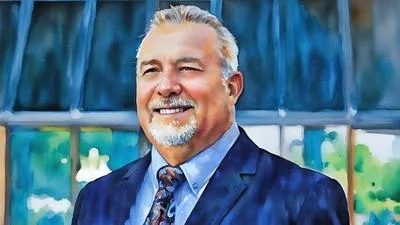New Mexico is experiencing record surpluses and rising oil and gas revenues, which present state leaders with a test. Will they invest in policies that create long-term economic well-being for all New Mexicans, or focus on short-term fixes and siloed spending?
For Katie Gutierrez of Think New Mexico, the right approach is to develop economic systems that put families first.
Gutierrez is the Tax, Budget, and Economic Development Reform Director at Think New Mexico. Originally from the East Mountains—Sandia Park, formerly known as San Antonito—Gutierrez comes from a long line of New Mexicans who “have been sort of working with the land for generations.” Her early interest in economic policy began during an internship at New Mexico Voices for Children, where she worked to eliminate the state’s food tax. “That really got me interested in this sort of state-level policy and how we can affect outcomes,” she says.
Gutierrez emphasizes the importance of making economic principles relatable to legislators and the public. “I try not to use too many economic terms… I tell them, look, this is a regressive tax. If you only have $400 a month to spend for a family of five, 8% is quite a good chunk of that. That’s several meals that you could be missing out on.” Her work prioritizes translating abstract policy language into concrete human impact, particularly for low-income families.
Gutierrez is especially interested in how tax policy shapes health outcomes. “It could be socioeconomic disparities or it could be actual health outcomes,” she says. She points out that taxing groceries not only reduces how much people can afford but also pushes them toward cheaper, lower-quality food. “Perhaps instead of buying whole wheat bread, they’re instead buying white bread because it’s a little bit cheaper… That can cause issues like diabetes… chronic illness.”
Her approach to public policy is on systems-level thinking. She believes in examining how state or federal taxes trickle down to affect individual decision-making. “What I really want to do is look systems-level,” she says. “We kind of think… I choose to eat healthy,” she says, but says that for many families with low incomes, it “isn’t always your own choice.”
Gutierrez takes on the complexity of the problems she tackles. “All of this works in a system, just like the weather.” In her view, “it’s the same thing in the economy.” She says the hardest part of her job is being part of a small team that must focus on only a few issues at a time, even though everything is interconnected. “It’s really difficult to pinpoint one thing and say, this is the problem and this will fix New Mexico because it’s so intertwined.”
When asked if the policy tradeoffs in New Mexico are too complicated to expect that her work can make a difference, she has a quick response. “No, no,” she says. “Change doesn’t happen overnight.” She says that local communities and even the legislature are trying. “People are–where they can–picking up the system.”
Gutierrez is especially encouraged by New Mexico’s investments in early childhood and social infrastructure. “We’ve shown that we really want to invest in our state,” she says, and adds “we have the Early Childhood Education Fund–we made childcare access free for people who couldn’t afford it.” She says this has lifted 120,000 New Mexicans above the poverty line. Using oil and gas money for social benefit is one way that we can really do it,” she suggests.
Still, she urges caution about how the state’s surplus funds are allocated. “One thing that we talk a lot about in economics is tradeoffs,” she says. “For example, there was talk of creating a behavioral health trust fund with some of our budget surplus, which is great,” she says. “But,” she adds, “perhaps in ten years it will be another issue–we don’t want to have this money locked away.” Instead, Gutierrez advocates for funds that are “open enough… not written into statute… that it can only ever be used for behavioral health.”
For Gutierrez, family and community are central. A balance between policy passion and personal joy seems to reflect her broader belief that systems can be improved, one choice and one project at a time.









